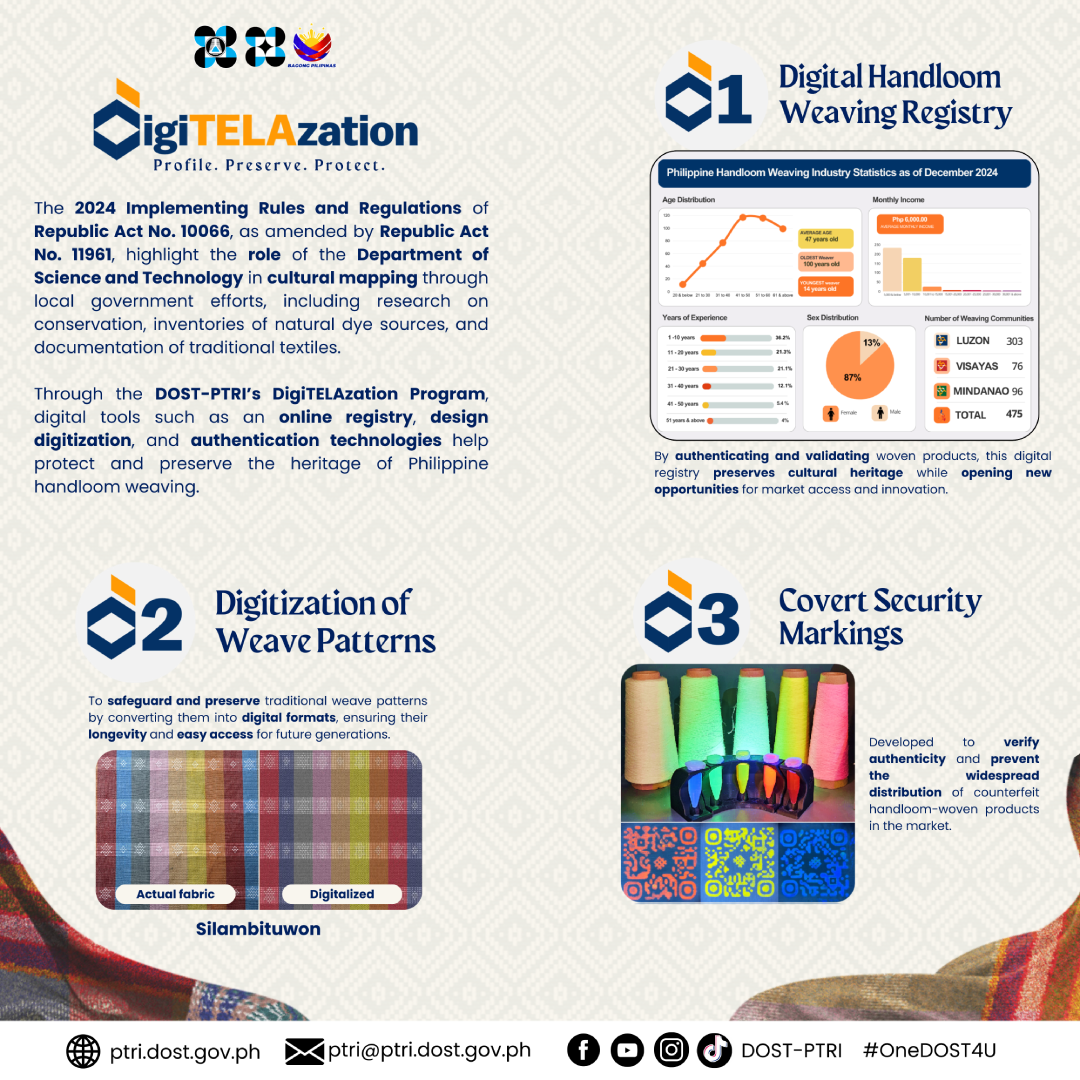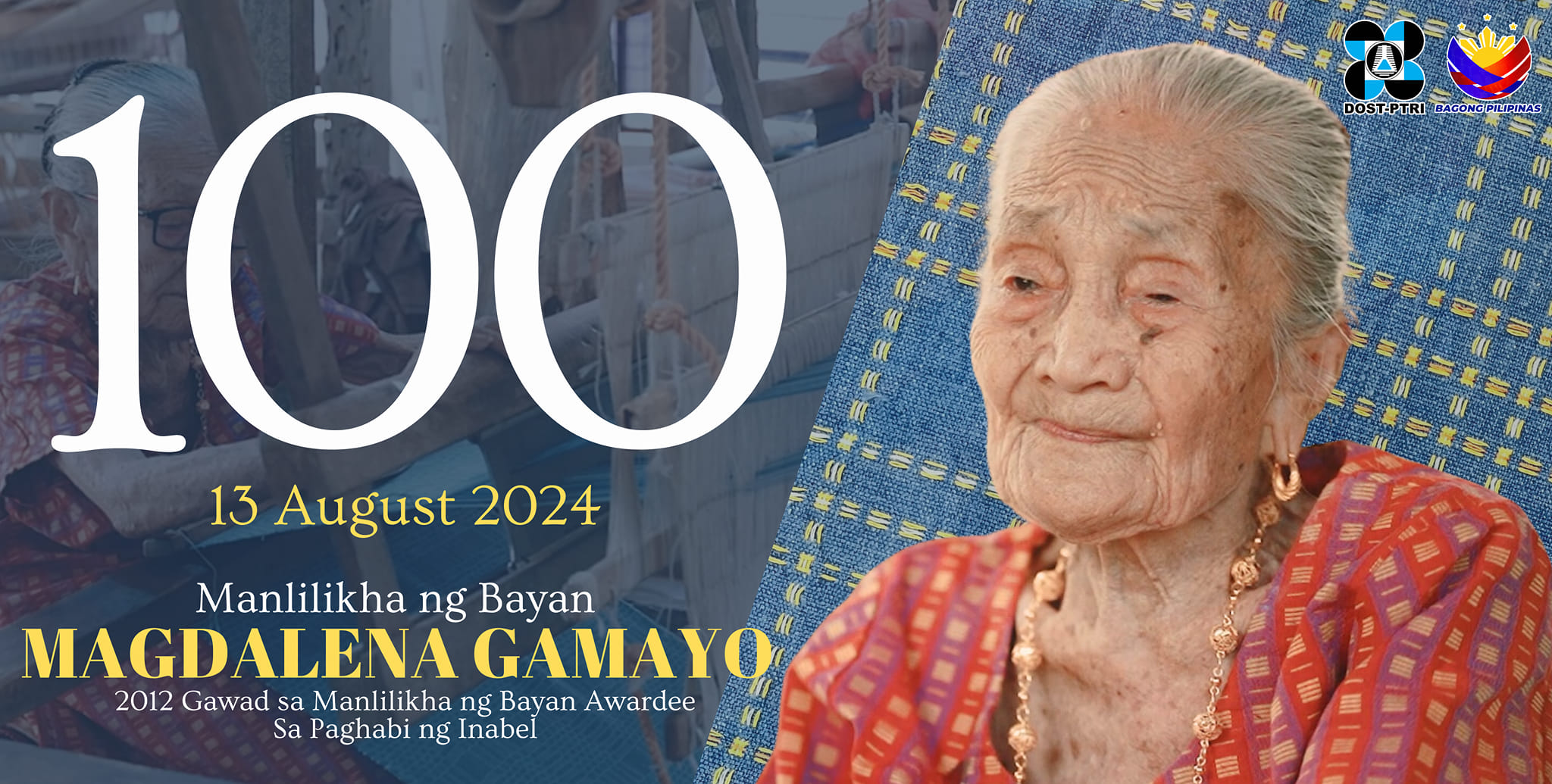- Details
- Hits: 582
11 Residents of Rizal, Kalinga Trained as Silk Reelers Under SEDA Pilipinas
11 residents from Rizal, Kalinga have completed a five-day training on Post-Silk Cocoon Processing (Reeling), providing them with the skills needed to become silk reelers. The training was conducted from March 31 to April 4, 2025, through the SEDA Pilipinas Program implemented by the Department of Science and Technology – Philippine Textile Research Institute (DOST-PTRI).
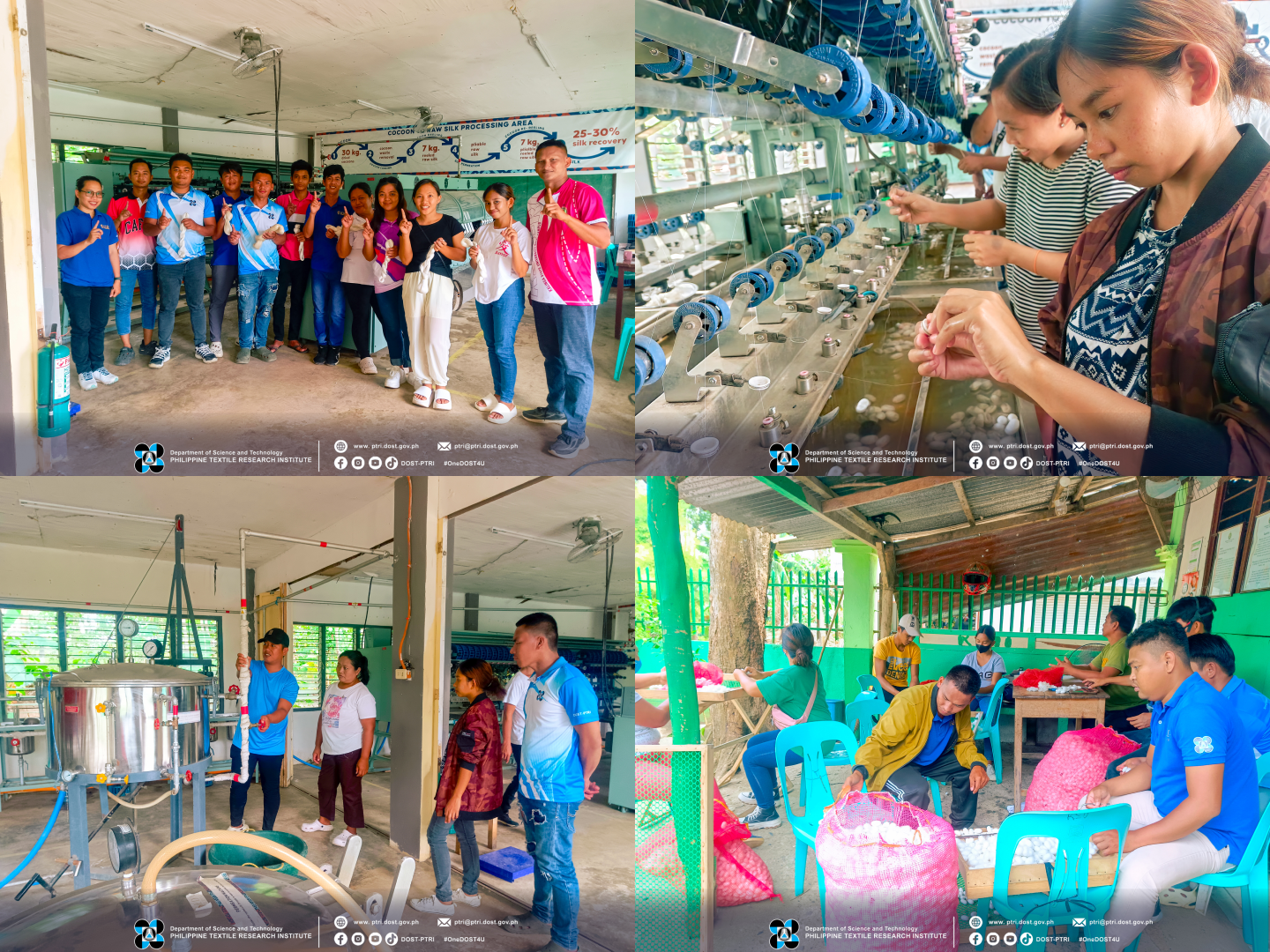
- Details
- Hits: 640
Treading New Paths in Medical Textile Science Through Establishing Connection with Adamson University
The Department of Science and Technology – Philippine Textile Research Institute (DOST-PTRI) recently held an Innovation Dialogue with Adamson University, bringing together faculty members from the Chemistry and Biology Departments to explore ways to collaborate in research, education, and innovation.
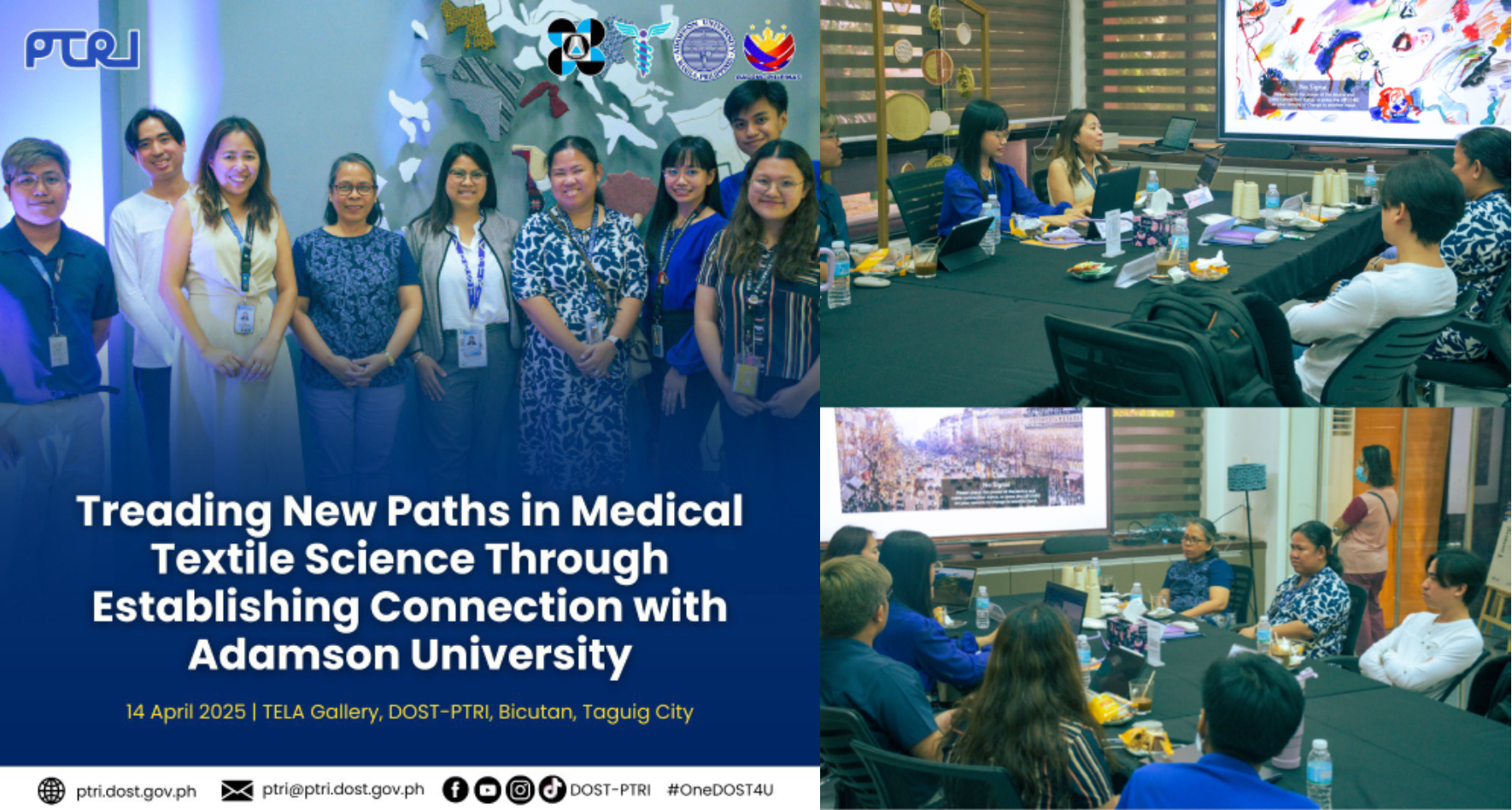
- Details
- Hits: 642
DOST-PTRI to Establish Silk Cocoon Hub in Laguna in Collaboration with DOST-CALABARZON and GSFAC
The DOST-Philippine Textile Research Institute (DOST-PTRI), in partnership with DOST-CALABARZON, is preparing for the establishment of the first commercial-scale Silk Cocoon Hub in Pangil, Laguna, in collaboration with the Galalan Sericulture Farmer Association Corporation (GSFAC).
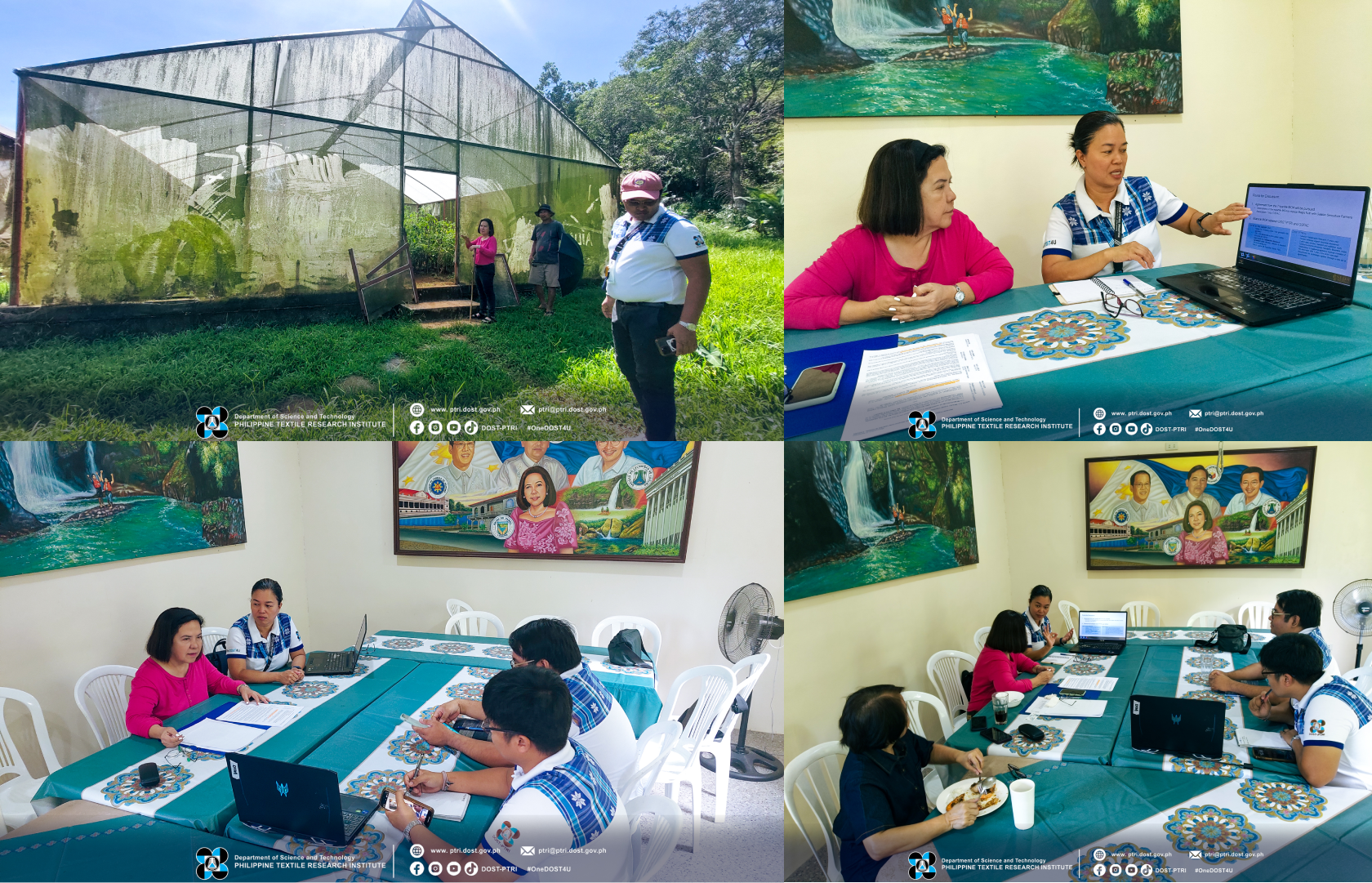
- Details
- Hits: 547
DOST- PTRI Partners with LSPU-Siniloan and DOST-CALABARZON to Establish Silk Innovation Center (SIC)
The Department of Science and Technology – Philippine Textile Research Institute (DOST-PTRI), through its SEDA Pilipinas Program, continues to make meaningful progress in Southern Luzon as it strengthens its support for the growth of the Philippine silk industry. This effort is in close partnership with DOST Region IV-A and the Laguna State Polytechnic University (LSPU) – Siniloan Campus.
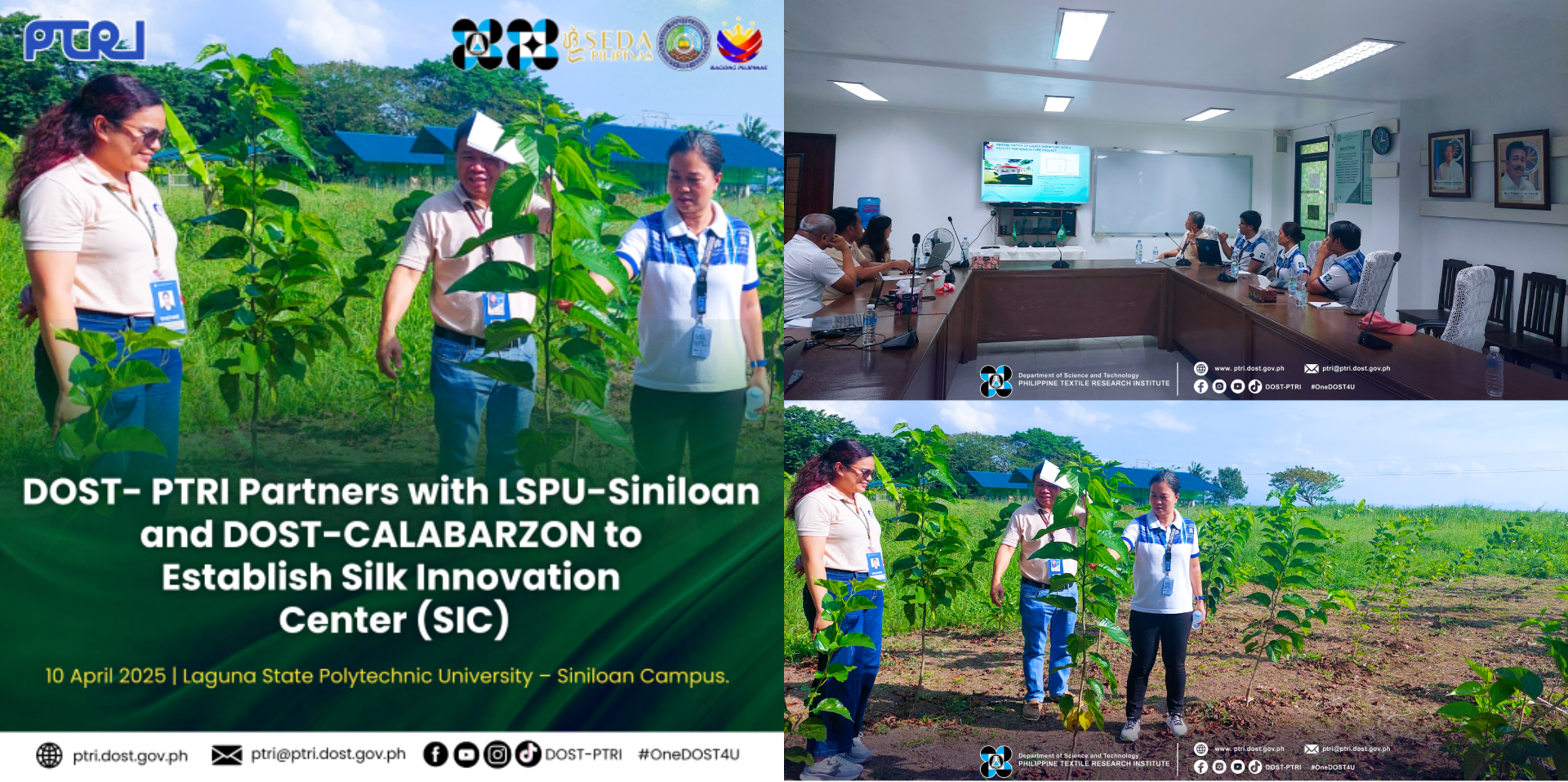
- Details
- Hits: 748
The DigiTELAzation Program of DOST-PTRI aligns with and advances the objectives of the Revised Implementing Rules and Regulations of the National Cultural Heritage Act of 2009
The 2024 Implementing Rules and Regulations of Republic Act No. 10066, or the National Cultural Heritage Act of 2009 as amended by Republic Act No. 11961, emphasize the vital role of the Department of Science and Technology (DOST) in cultural mapping. This includes supporting local government units in applying research for the conservation of materials and heritage structures, conducting inventories of natural dye sources, and documenting traditional textiles, apparel materials, designs, techniques, processes, and weaving machinery. The law also highlights the importance of research and development in driving innovation within the Philippine textile industry.
